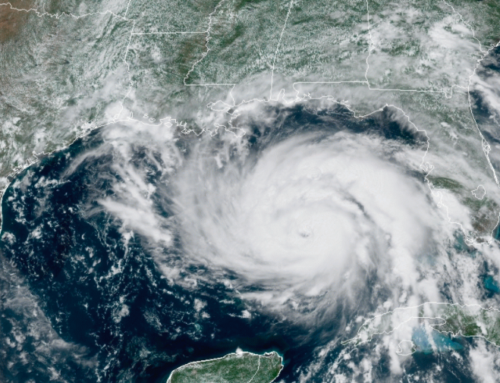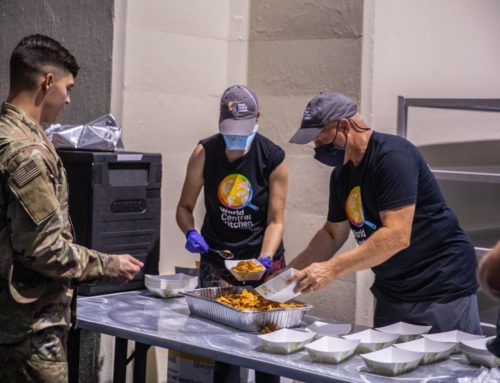Dear Friends,
More people voting can only be a good thing for a healthy democracy.
As we outlined in our Divided by Design report, we heard loud and clear that protecting democracy is important– not only because of the ways Black Americans have been disenfranchised, but also because of the way our current democratic processes keep Black and White communities divided. For too long, some in this country, especially across the South, have put up barriers to voter participation. In response to this pandemic, we have the opportunity to say “no more.”
The scenes from elections in Wisconsin last week highlighted why focusing on voting access and rights is so important. It is criminal that people are being forced to choose between their health and their Constitutional right to vote. As the coronavirus continues to affect communities across our country, health care and local leaders must continue to stress the importance of social and physical distancing. And because distancing remains a priority, leaders at all levels of government must also focus on finding alternatives to traditional, in-person voting. One necessitates the other.
There is at least one solution to this situation– implementing nationwide vote-by-mail. Mail voting is the best method to comply with social distancing protocols.
The Centers for Disease Control and Prevention lists postal balloting as its number one recommendation in order to reduce anticipated crowd sizes at polling locations, and in response many states have considered a number of temporary reforms that include expanding availability of absentee ballots for their residents, extending-early voting periods, and transferring polling location away from vulnerable populations.
Some southern states–including Alabama, Georgia, Virginia, and West Virginia–have already begun implementing processes by which their citizens can vote by mail and maintain their safety during this trying time. But too many haven’t yet made a commitment to doing so.
Beyond ensuring healthy and equal access to the ballot box, mail voting also has been a proven way to increase overall electoral participation.
For more on vote by mail and how southern states are (or aren’t preparing), please check out our new blog. There, we’ll post weekly reflections on news and current policy debates related to E Pluribus Unum’s mission of bridging the race and class divide in the South. Last week’s post was about the need for disaggregated racial testing and death data to address current and existing disparities.
On a final note, despite how COVID-19 has highlighted the major disparities in our society, I want to note how much this crisis has reminded us that we are all in this together. Far too often, we forget just how connected we all are. White, Black, or Brown, rich or poor, rural or urban, we all depend on one another in ways big and small. It may take a health crisis to remind us of this, but it was always the case. And it will remain that way when this current crisis has passed. We cannot forget this.
Please stay connected with us online by visiting our Twitter, Facebook and Instagram pages. My thoughts and prayers remain with everyone during this unprecedented time.
Mitch Landrieu
Founder and President
HEARD AROUND THE SOUTH
News and stories about how southern communities are reacting to COVID-19
Alabama: The Mobile City Council will now conduct its meetings remotely.
Arkansas: Several state institutions are working together to gather convalescent plasma from people who have recovered from COVID-19 for use in an exploratory treatment.
Florida: An arts organization has set up a relief fund for artists in Miami-Dade County who are struggling due to the coronavirus and are ineligible for unemployment benefits.
Georgia: The Smyrna Police Department is offering grocery and medicine delivery to seniors in the area to reduce their risk of contracting the coronavirus.
Kentucky: Louisville makers are hosting a virtual craft fair to replace income from canceled in-person events.
Louisiana: New Orleans Mayor LaToya Cantrell has convened a death care task force on how to properly take care of COVID-19 victims.
Mississippi: Clarksdale Mayor Chuck Espy announced that every city worker will receive hazard pay for 30 days.
North Carolina: A $50 million study is underway at Duke Clinical Research Institute to evaluate whether hydroxychloroquine can prevent COVID-19 in health care workers.
South Carolina: Governor Henry McMaster issued a work-to-home order, adding fines and possible jail time to keep residents away from each other.
Tennessee: The state’s Board of Education voted on emergency COVID-19 rules detailing how to proceed with the school year.
Texas: Dallas Mayor Eric Johnson announced a new task force focused on COVID-19 economic recovery.
Virginia: Four public media stations in Virginia will broadcast teacher-led classroom instruction for students in grades K-10 who may not have access to high-speed internet.
West Virginia: At least two West Virginia colleges have set up emergency assistance programs to financially help students during the coronavirus pandemic, especially students employed by the school but not covered under federal aid programs.
Recent News & Commentary
New York Times: Trump Is Pushing a False Argument on Vote-by-Mail Fraud. Here Are the Facts.
As the coronavirus pandemic accelerates a national trend toward voting by mail, experts say it can be conducted safely.
Brennan Center for Justice: Why a Vote-by-Mail Option Is Necessary
At least 16 states have already delayed some elections or allowed citizens to vote by mail with extended deadlines.
MIT Technology Review: America might survive coronavirus. But will the election?
The machinery of electoral politics has been thrown into turmoil by COVID-19. The only thing that does seem to be clear is that 2020’s election is going to be a challenge of unprecedented proportions.
Washington Post: There’s plenty of room to compromise on mail-in voting.
Wisconsin’s statewide elections demonstrate the difficulties of voting during a pandemic. The major political parties disagree on how to plan for November’s election & efforts to expand access to voting by mail.
STRIVE International: Hidden Heroes of the Frontline
STRIVE graduates are working tirelessly on the frontline in jobs that keep our communities safe and resilient. Every day, they show up: to care for our sick, clean our facilities, prepare our meals, and deliver vital supplies.
Washington Post: Cities, counties fear losing out on US virus rescue funding
The $2.2 trillion federal rescue package could fail to deliver badly needed financial aid to thousands of smaller cities and counties where a majority of Americans live, according to documents and interviews with local officials.
Resources
America’s Food Fund
The COVID-19 crisis has left millions unsure where their next meal will come from. The Emerson Collective, Leonardo DiCaprio and Apple launched America’s Food Fund, a new initiative directly supporting Feeding America and World Central Kitchen. Click to donate.
COVID-19: Local Action Tracker
The National League of Cities and Bloomberg Philanthropies have teamed up to collect and share actions taken by local leaders in response to the COVID-19 pandemic.
4 things mayors can do to address Covid-19 racial disparities
Data released recently shows that the virus is infecting and killing a disproportionate number of African-Americans.
Social Distancing Scoreboard
Unacast created a scoreboard to rank how each state’s residents are doing keeping their distance. Kentucky and West Virginia have some of the worst scores in the nation.



